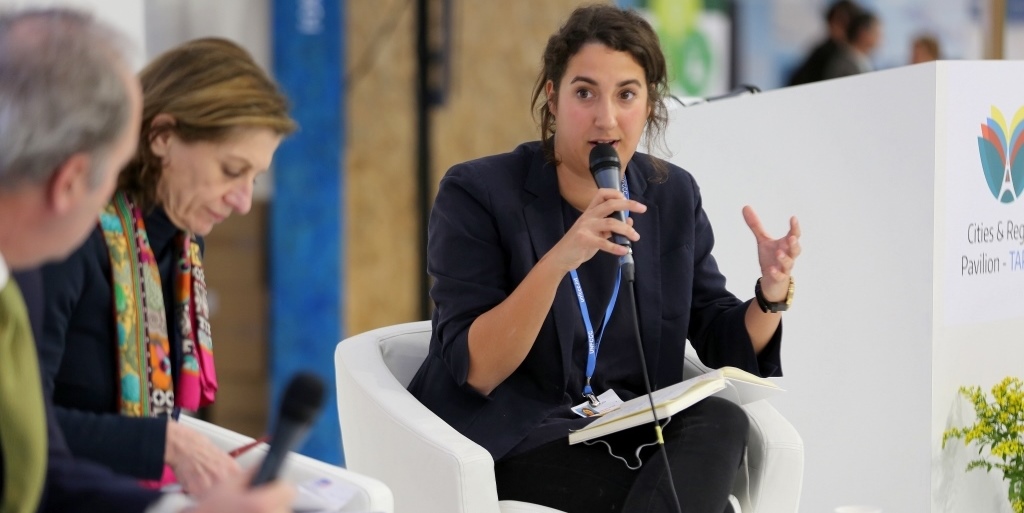Working together to usher in just and sustainable energy transitions for people and planet
Worldwide, national and subnational governments are setting targets and developing policies to accelerate the transition to sustainable energy systems that ensure energy security and climate neutrality. Global events such as the COVID-19 pandemic and the Russian war in Ukraine make the need for this energy transition even more critical. Implementing such a transition requires collaborating with a diverse range of stakeholders including civil society, local communities, researchers, citizens, and businesses to ensure that no one is left behind.
The costs and benefits of implementing sustainable energy systems and climate neutral policies will impact citizens, communities, and livelihoods differently. In some cases, policies are designed specifically with most vulnerable groups in mind; still, many others (inadvertently) increase existing disparities. This can be seen, for example, in the ways that energy retrofits can – if not planned with equity in mind – lead housing costs to increase until they price-out the poorest members of a community. If policies are not socially just, then they will not be accepted or sustainable in the long-term.
Multilevel governance – in other words, decision-making done via true collaboration between different ‘levels’ of government (e.g. a city, region, and nation) – is an essential tool to address inequity and foster an energy transition that is sustainable and just. This form of collaboration can bring together the resources held at national levels, with the day-to-day realities that local leaders know well. After all, cities are the level of government closest to the people. Thus, they are strategically positioned to support implementation of an inclusive, just and accelerated energy transition.
As we near a number of global tipping points, local and regional governments have played, and will continue to play, a key role in the transition to energy systems that work for everyone. On 2 December 2023, local leaders from around the world came together at COP28 to share the actions they are taking to ensure such a transition takes place in a session titled, “Just and Sustainable Energy Transition for people and the planet: How mayors are taking action to leave no one behind towards the Paris Agreement Targets”.
How cities are ensuring a just and sustainable transition
We can look to cities around the world for examples of using a multilevel governance approach to advance sustainable and just energy transitions.
In Ghana, for example, the Accra Metropolitan Assembly aligns its Climate Action Plan revisions with updates at the national level to the Government of Ghana’s National Determined Contributions (NDCs). The city’s plan emphasizes the importance of integrating economic objectives and social cohesion in its renewable energy initiatives. Accra has shared its experience via projects such as the Smart Energy Solutions for Africa (SESA) project, which helps municipalities incorporate social and environmental objectives in their multilevel governance approaches to reach their climate targets.
In Europe as well, cities are leveraging a multilevel approach. This is particularly important as the European Green Deal and the European Climate Law put Europe on track to be the first continent to be climate neutral by 2050. Malmö (Sweden) is leading the way, putting people at the heart of their sustainability policies. The Malmö Commitment, a landmark initiative, “positions local and regional governments at the center of the global response to today’s challenges, by encouraging sustainable approaches, innovation, adaptability, participation, and inclusiveness in policy making…and by embedding social equity at the core of their local sustainable development.”
“Through the Malmö Commitment, mayors and cities agree to work towards intertwining the green solutions with the social sustainability perspective. Basically, it is work that we already do with ICLEI, which has a strategic vision with a dedicated people-centered development pathway. We designed this commitment to share and showcase our experiences, but also to have measurements to show that we are making progress. We already have many adopters; we now want to engage more cities. We have an opportunity to strengthen our cases when we do it together. I invite you to join us for the Malmö Commitment,” said Katrin Stjernfeldt Jammeh, Mayor of Malmö, Sweden.
In Scotland, a just and sustainable energy transition is realized through initiatives such as the Glasgow Green Deal, a holistic mission which aims to fundamentally reshape the city’s economy to deliver equitable, Net Zero carbon, climate resilient living by 2030. This initiative is driven by three interlinked objectives, one of which specifically aims to “eliminate poverty and deliver justice through inclusion and equality.” A key instrument in implementing the Glasgow Green Deal is the city’s Just Transition Skills Action Plan, which outlines the skills needed to secure a just transition and climate resilient economy.
These cities show that local governments have immense power to implement energy transition through targeted policies, sustainable business models, capacity building activities, and strategic investments. By working collaboratively and sharing best practices with each other, as well as different levels of government, local governments can accelerate sustainable and just energy transitions.






